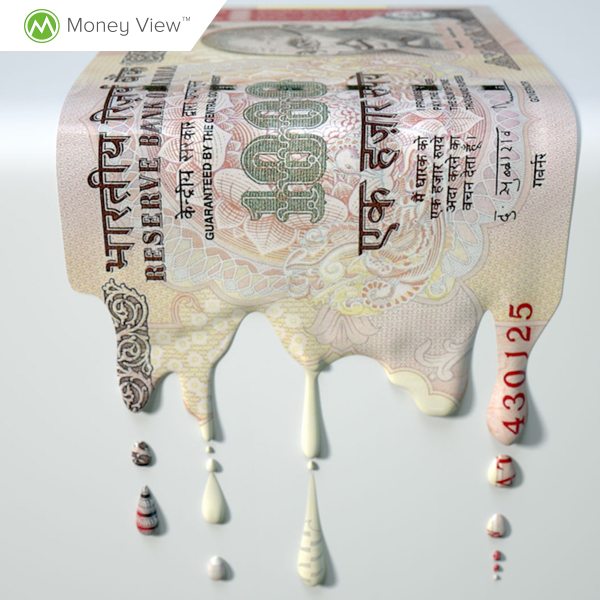Why Liquid Funds Are Better Than Deposits in Savings Bank Accounts?
It is prudent financial advice to keep about 6 months’ expenses in an Emergency Fund. It is also general tendency to park a significant proportion of our surplus cash in savings accounts, even though these accounts generally yield very low returns of around 4%. Despite the fact that RBI had deregulated interest rates on savings accounts some time back, the majority of the banks did not increase their savings rates from the then-prevalent 4%. Only a few banks pitched themselves aggressively by offering higher rates ranging from 4.5%-7%.
For a traditional saver, the savings bank accounts provide the convenience of withdrawal anytime and hence are the favourite places to leave their money in. But with the emergence of financial markets, many instruments have come up offering similar convenience and higher returns. One such instrument is liquid funds. These can help us earn better returns from what the savings accounts offer while not compromising much on the liquidity and availability of funds.
What is a Liquid Fund?
Liquid funds are a special category of mutual funds that invest primarily in debt and money market securities like treasury bills, certificate of deposits, commercial papers etc. with maturity of up to 91 days only. Liquid funds derive their nomenclature from the liquidity they offer for the funds invested since these provide faster redemption proceeds than regular equity or debt mutual funds.
Benefits of Liquid Funds
Convenience: Liquid funds offer the convenience of liquidity of funds since they do not charge any entry or exit loads, irrespective of the period for which funds have been invested. There is no lock-in period for the funds.
Faster processing of redemption requests: The redemption requests from liquid funds are processed faster. So, you just need to place the request for funds before 2 pm on a working day and the funds transfer is initiated for transfer to your bank account the very next working day.
Low interest rate risk: Also, since the liquid funds invest in money market instruments or other securities with residual maturities of less than 91 days, these types of funds carry lowest interest rate risk.
Returns from Liquid Funds
As per the data available, liquid funds generated an average return of 7.5% over the past one year with returns ranging from 9.0% for the best performer and 5.3% for the worst performer. So, going by the law of averages, liquid funds have offered the returns at par with the term deposits rates currently offered by banks while additionally offering liquidity similar to Savings Accounts.
Taxation of Liquid Funds
While you may feel motivated to invest your funds into liquid funds, you must also be curious to know about the taxation from the returns you get from liquid fund. It is certainly important to classify the income in correct column under Income Tax Returns. So, while the interest on Savings Account is taxable under the head ‘Income from Other Sources’, the returns from liquid funds will be taxed as capital gains. The tax rate also depends upon the duration for which funds have been invested.
Units of a liquid fund shall be considered as a short-term capital asset where the same are invested for a period of 36 months or less. When you keep the funds invested for more than 36 months, it will attract long term capital gains whenever you sell it. Short term capital gains are taxed at the normal rate of income tax, while long term capital gains are subject to tax at 20% (plus surcharge and education cess as applicable) with indexation benefits.
Hence, it can be seen that the taxation of liquid funds is at par with interest from Savings Account in case the funds are kept invested for a period of 36 months or less and it is even more tax friendly in case funds are invested for a longer period.
Dividend Plans or Growth Plans
Dividend plans offer regular income through dividend declaration. On the other hand, no dividend is declared by growth plans and appreciation of fund is reflected in higher unit value.
Dividends received from liquid funds are not taxed in the hands of resident individual investors but fund has to pay dividend distribution tax @28.84% (including surcharge and cess) which is funded through NAV of the fund only and thus it implies taxing the investor at 28.84%. Thus, it is only marginally better for the investors taxed at 30%. Hence, the decision for investors being taxed at lower rates is easy in favour of growth plans.
A rough calculation for a person having Rs. 25,000 monthly expenses and therefore keeping 6 month’s funds as emergency funds in savings account shows that he is losing Rs. 5,250 every year by just not keeping the funds invested in a liquid fund giving average returns of 7.5%. That’s more than 20% of your one month’s expense, which can be funded from these funds itself.
So, it’s time to change your thinking and get your funds to work harder and yield smarter with liquid funds.
We are pleased to showcase, Simardeep Singh, the proud winner of #MoneyViewTwitterActivity on the blog today. He is a Chartered Accountant based in Delhi. He loves sharing his knowledge about personal finance and investment. He blogs regularly at www.simardeep.com.


Congratulation Simardeep. Can you please share some liquid funds names in this forum for the benefit of the Group?.
Dear Muthu, the best performing liquid funds these days are Axis Liquid Fund and HDFC Liquid Fund with historical returns of 8.2% over the last year.
What happens to the invested amount once the residual maturity (91 days max) is over but the investor does not cash out? Is the principal or principal+interest reinvested or the amount accumulated till then is left untouched by the fundhouse since the underlying instruments have expired? Also you’ve recommended these funds for emergency corpus, what are the risks (specifically interest rate risks) in investing much larger amounts that normally lie idle in SAs?
Dear Vijay, liquid funds don’t come with a fixed maturity date. Instead, they are the investors in the short term instruments with fixed maturity. So, the funds remain invested in one security or the other. Your principal amount remains invested till the time you wish so and the returns to you are in form of increase in NAV and resulting gain on redemption of the liquid funds.
Further, regarding your doubt on interest rate risk, liquid funds are least affected in terms of interest rate risk since these invest in quite short-term instruments, and the portfolio generally has a diversified residual maturities and accordingly, there is lesser probability of returns on account of price changes due to changes in interest rates and consequently, lesser interest rate risk too.
Shall be glad to clear off any further doubts.
I’m confused between Birla Sun life cash plus & Sundaram money fund. I checked their portfolios for various months and notice that the former has a concentrated investment in Commercial papers while the latter invests more in Certificate of deposits. I feel CDs are safer than CPs and therefore its better to choose Sundaram Money Fund. Is my line of thinking correct?
Thanks…for the insight….
Hi,
Thanks for the explanation.
Liquid funds are not much beneficial for investors who are already in the non-taxable category, right?
Give me idea how transfer cash to bank account